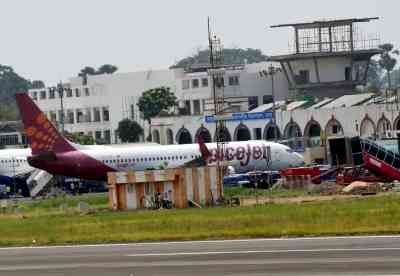SpiceJet says salary delay part of ‘phased disbursement schedule’ during lean periods
SpiceJet has delayed salary payments for a significant portion of its employees and according to the budget airline on Sunday, it follows a “phased disbursement schedule” during lean periods that continues over a few days.

New Delhi, Sep 14 (IANS) SpiceJet has delayed salary payments for a significant portion of its employees and according to the budget airline on Sunday, it follows a “phased disbursement schedule” during lean periods that continues over a few days.
According to people familiar with the matter, those earning up to Rs 55,000 are being paid on time while senior staff are facing delays.
A spokesperson for the airline said like in some other industries, during lean periods, SpiceJet follows a phased disbursement schedule that continues over a few days.
“Our employees are well aware of this schedule, which has been a consistent practice, and there has been no change or deviation from it,” the spokesperson added.
As of September 7, more than 60 per cent of employees have already received their August salary, and the balance is being cleared in line with the schedule, the airline informed.
As per the airline’s annual report for FY25, it employed 6,484 people, including 4,894 permanent staff.
In FY25, the budget carrier paid an interest-free advance of Rs 32 crore to Chairman and Managing Director Ajay Singh for a five-year term, in line with board-approved policies and guidelines.
The budget airline slipped into the red in the April–June quarter (Q1) of FY26, reporting a consolidated net loss of Rs 234 crore compared to a net profit of Rs 158 crore in the same period previous financial year (Q1 FY25). The sharp decline came as revenues from operations dropped 34.4 per cent year-on-year (YoY) to Rs 1,120 crore from Rs 1,708 crore, according to its stock exchange filing.
The airline said the losses were mainly due to costs linked to grounded aircraft and expenses for bringing them back into service. It also pointed to geopolitical tensions with a neighbouring country and airspace restrictions in key markets, which hit leisure travel demand.
—IANS
na/



 IANS
IANS 










